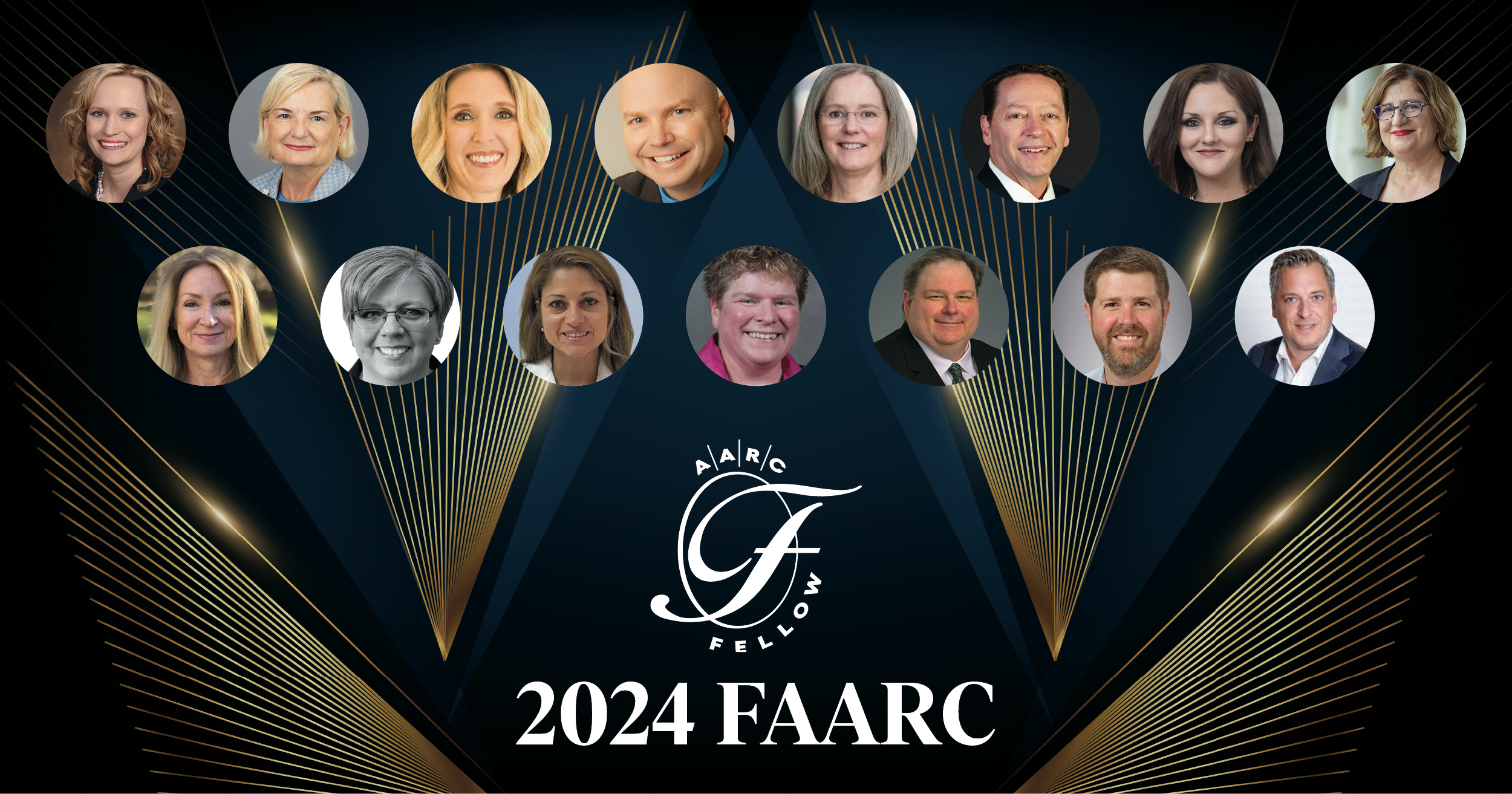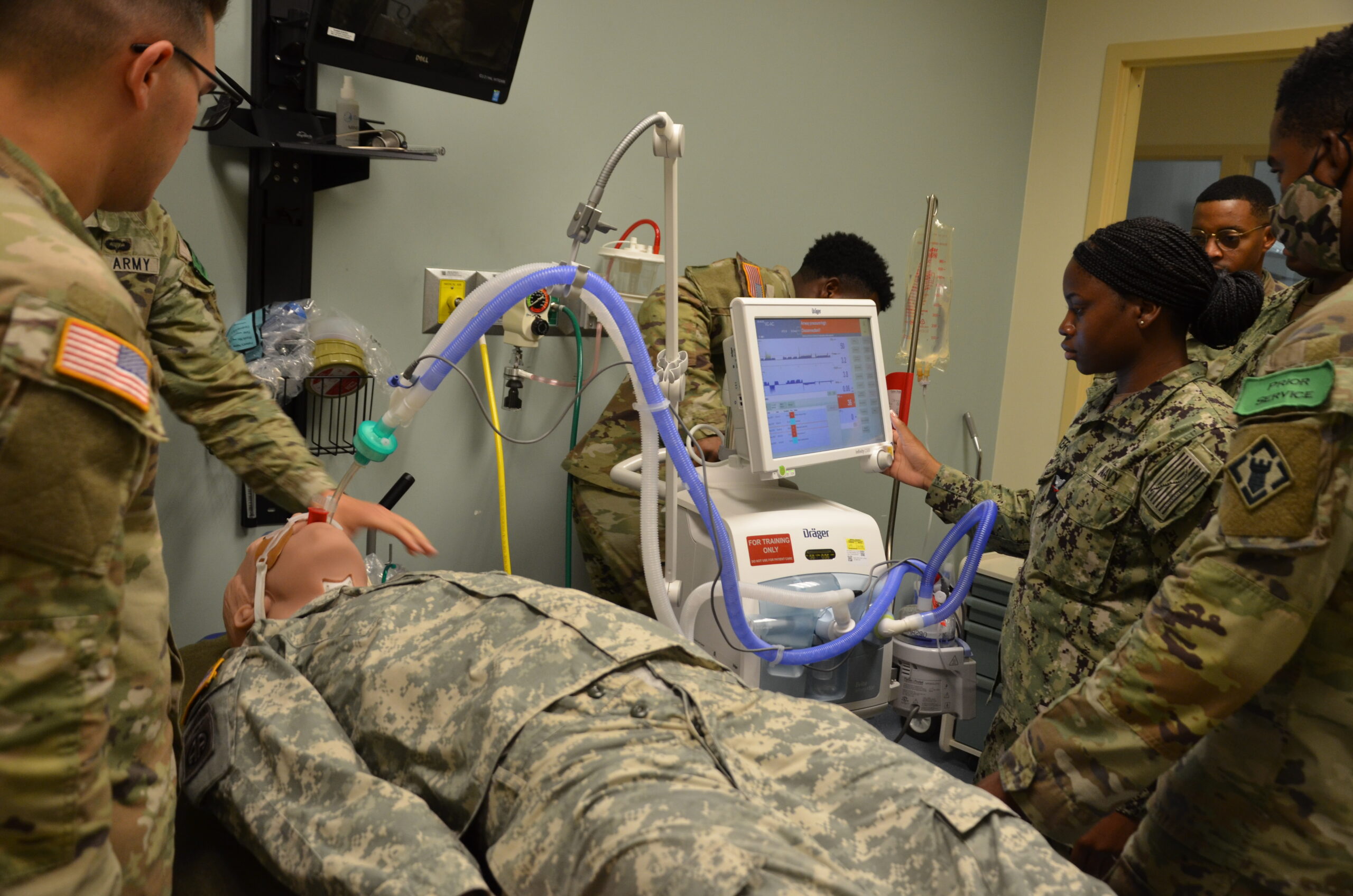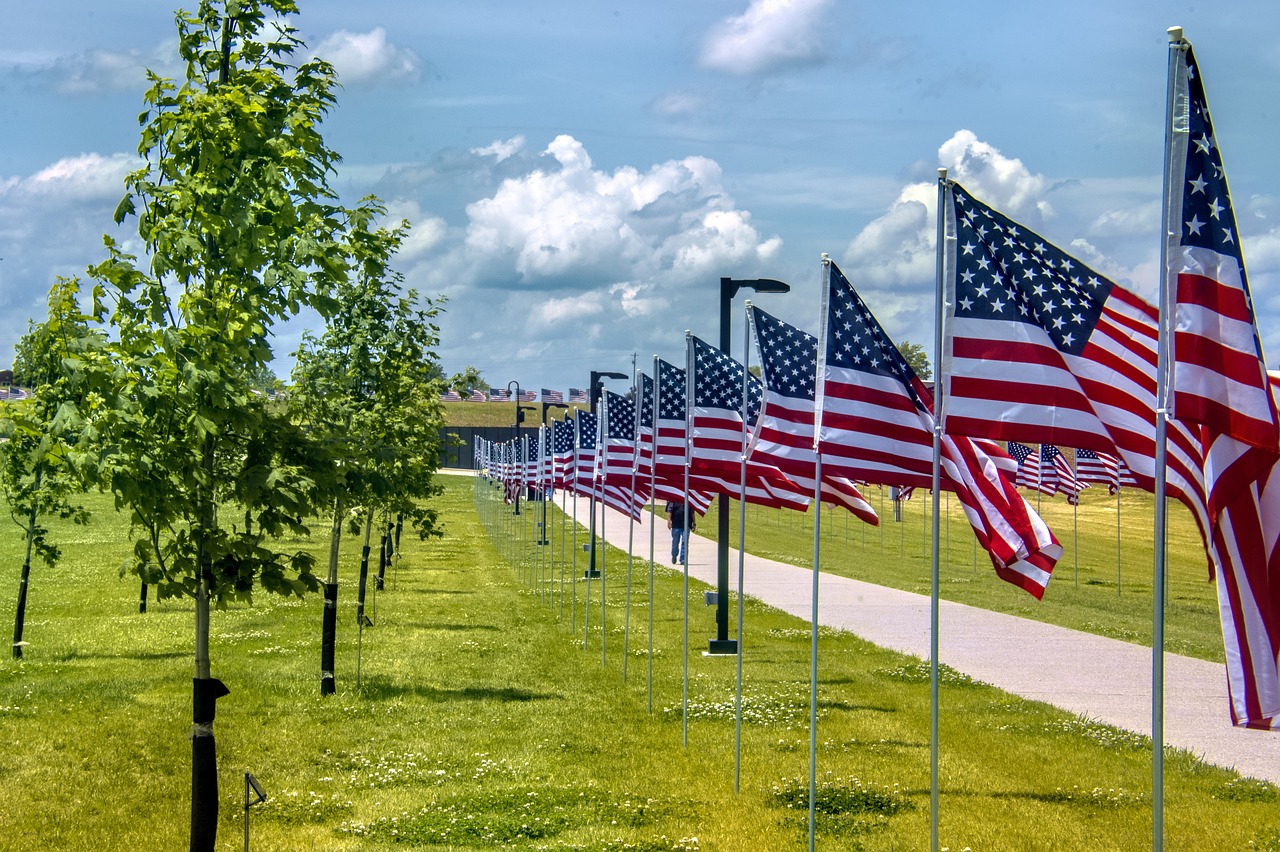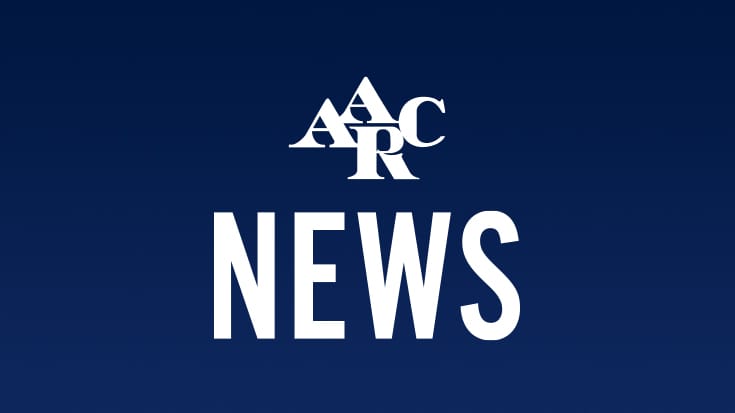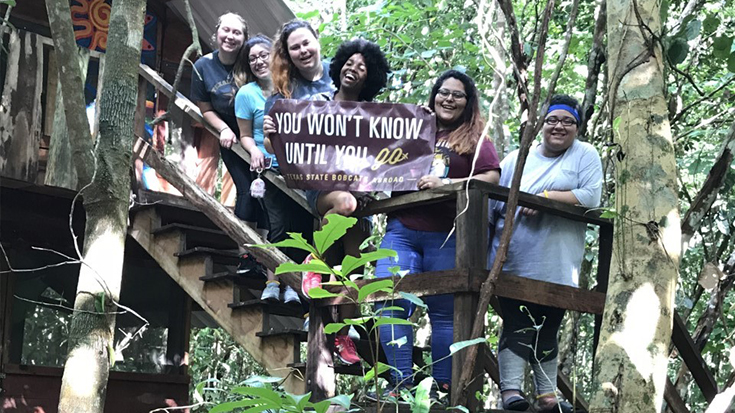
Texas State University Respiratory Care students travelled to Georgetown, Guyana, South America for their first solo study abroad trip. Whether providing care in the hospitals, working with the students, volunteering at the children’s orphanage, or touring the beautiful country, the Texas State students gained a unique view of the culture and people of the country.
Setting a new course
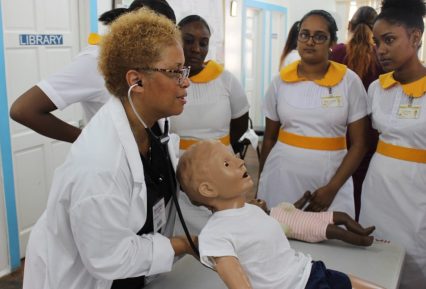
“Our number one goal was to bring the profession of respiratory care to the country,” said Sharon Armstead, EMBA, RRT, director of clinical education, clinical assistant professor at Texas State University.
Armstead and her team proposed the project, which was the first ever study abroad program for respiratory care students in the country of Guyana. They also partnered with the team from the school’s mass communications department for the trip.
“We were hugely supported by a CHEST Foundation grant,” Armstead said. “This past year, I was blessed to be the recipient of the 2017 CHEST Foundation Community Service Grant award. The collaboration with the CHEST Foundation allowed us to purchase much needed spirometry equipment and assisted our students in the performance of part of their project. “
This was the first time Texas State sent representatives to Georgetown, Guyana. Previously, the respiratory care students participated in a four-discipline Inter-professional study abroad program in 2017 that brought them to Managua, Nicaragua. They were part of a nursing, clinical laboratory and mass communication team. As a result, the team was awarded the Texas State Quarterly Team Award – Interprofessional Service Learning Study Abroad Program Team in 2017.
Promoting the profession
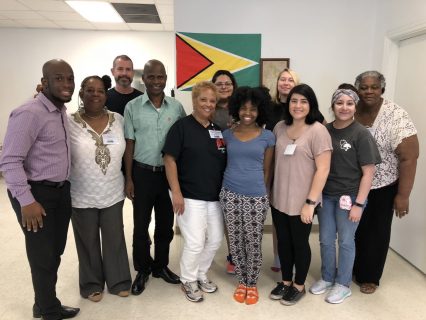
Working in Guyana gave the team a chance to increase exposure of the respiratory care profession as well as offer education about asthma and COPD. The asthma screening services provided by the Texas State students aimed to help increase awareness of risk factors as well as diagnoses for asthma and COPD in Guyana.
“Many patients are told they have the cold, the flu or asthma, but the country has limited diagnostic resources,” Armstead said. “Hopefully, with the help of the CHEST Foundation, our donation will improve in that area.”
A personal connection
“I am a Guyanese citizen, who left at age 12 and returned 46 years later as a respiratory therapist on a mission trip in 2015,” said Armstead, who currently participates in a yearly mission trip to Georgetown, Guyana through Bridges Global Medical Missions. “It was extremely rewarding to be able to recognize the respiratory needs and offer my services and see the results.”
Prior to the students’ visit, there was only one spirometry lab in the country.
“They do a great job and work very hard,” Armstead said. “Thanks to the CHEST Foundation we were able to deliver two mobile hand-held spirometry units to the country.”
Through this study abroad opportunity, Armstead hoped the country could see the complete scope of the profession and then consider better developing respiratory care education. Currently respiratory care is the only allied health program not at the University of Guyana.
A trip to remember
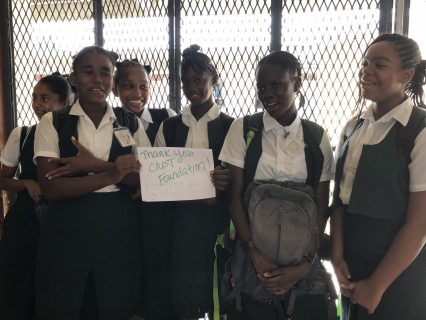
The Texas State students worked in the ICU, emergency rooms, and performed spirometry screenings with students at Mackenzie High School.
“I believe the screenings were probably my favorite because they interacted so well with the students,” Armstead said. “They taught, interviewed and performed the testing and it was a pretty proud moment for me as a professor.”
Armstead continued to explain that this was a milestone moment for her as she stood on the exact stage that she stood on so many years ago as a child.
“To return as a professor with my own students, it was an emotional moment for me,” said Armstead, who’s father was a teacher and former principal at Mackenzie High in Linden, Guyana. “This entire trip was a dedication to he and my mother.”
Student reflections
Armstead expects her students learned that medicine does not always have to be done the way we do it, we can do much with less.
“Hopefully they learned the true value we are as a profession to the healthcare team,” Armstead said.
Her students shared their own thoughts about their experience in Guyana.
Amber Hazlett (RRT, recent graduate):
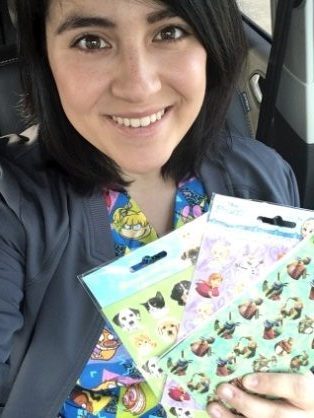
What I liked best about the trip was being able to experience another country and see the differences between the healthcare that they offer to their patients and what we offer to our patients. Seeing the lack of respiratory therapy in another country helps me understand the importance of what I bring to a healthcare team.
One of my more memorable experiences was explaining to a nurse what wheezing sounds like in an asthma patient and how that helps us determine what direction to take the treatment process.
Stephanie Kelley (RC):
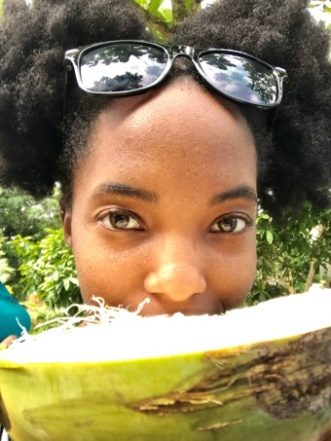
What I liked best about the trip was the asthma screening with the kids! It was fun getting to know the kids and what it’s like to go to school there.
I do have to say that I liked working in the hospital just as much. It was amazing to see how they were able to work around equipment that they didn’t have and still make due. They were really interested in what we did as a profession and soaked up any information that was said. They were so polite and respectful. I can’t wait to go back!
Katie Burrell (Mass Communication)
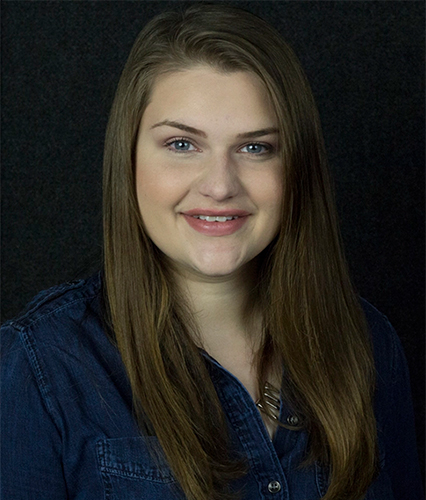
What I liked best about the trip was being able to watch firsthand the discussion/debate that went on between our students and the nursing staff. Being able to witness their initial reactions I was able to, as a journalist, authentically understand their relationships and the hospitals. This is much more effective for reporting than if we were to have stayed here and just interviewed them when we got back. I liked the authenticity of the trip.
My most memorable experience was Sofia. This was a special day for me because we were able to interact with the children and it was a heartwarming moment for me to see their joy. Otherwise, I really enjoyed pitching in at the high school and watching them get asthma tested.
Shane Rodgers (RC)
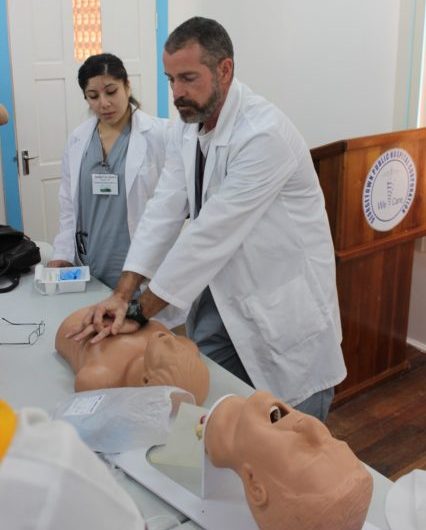
I liked the chance to visit South America, it is a beautiful place and I enjoyed the warm weather.
I also enjoyed the chance to see how hospitals were run in a country with fewer financial resources than we have in America. The food was great also, I like how it is all fresh and not as processed as American foods.
The CPR event within my first two hours in the ER in Georgetown [was my most memorable experience]. A patient who was in the critical holding area was doing poorly, exhibiting increased work of breathing and tachycardia. He arrested and I was able to enter into the code and perform chest compressions.
For more information, photos and stories about the Guyana trip, visit the Texas State University Global News Team site.
Email newsroom@aarc.org with questions or comments, we’d love to hear from you.






